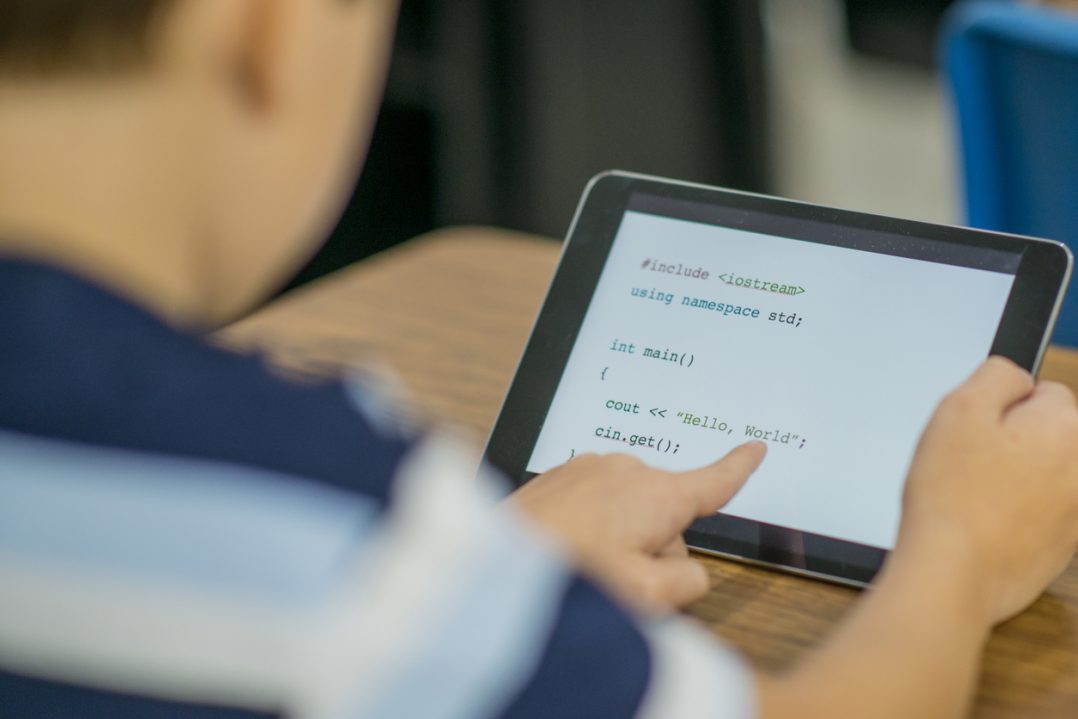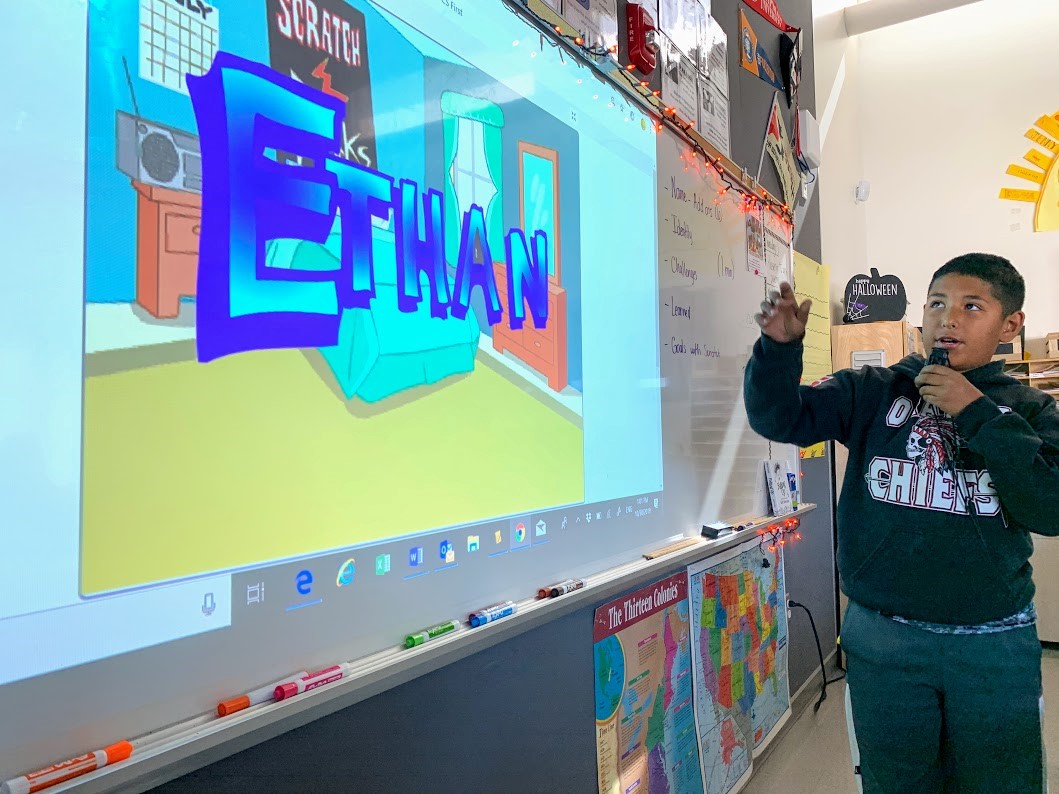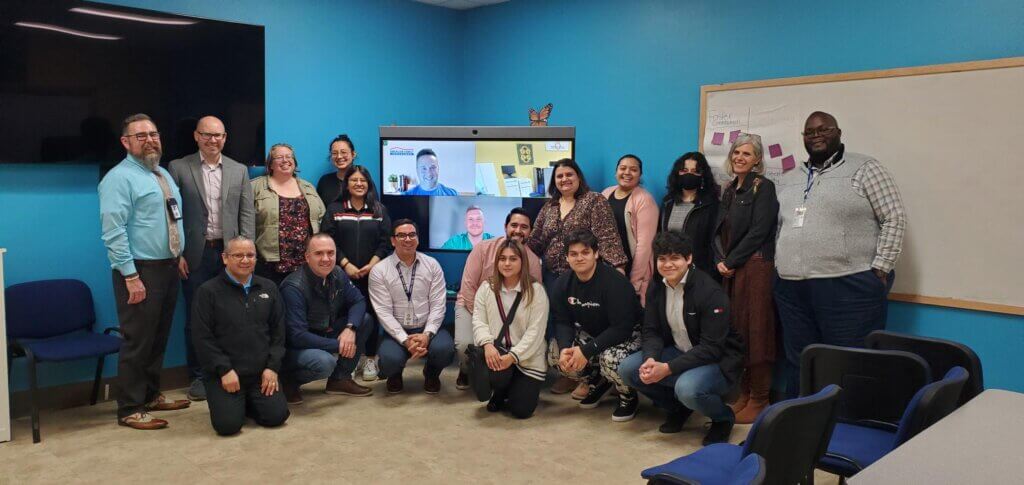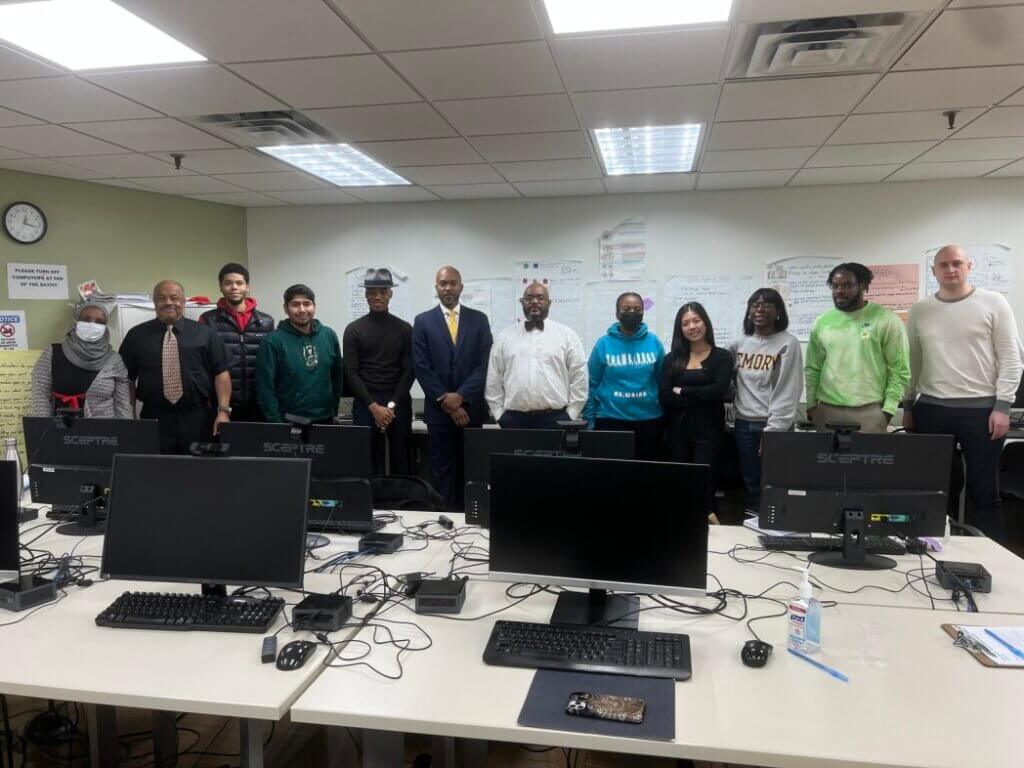Unlocking the Gateway to Success: Making STEM Accessible to Latino Students

By UnidosUS STEM Manager Shante Stokes.
This week, tech companies across the nation will celebrate Computer Science Education Week with events such as STEM summits, tech fairs, or just an hour of coding. The goal is to expose K-12 students to innovative and exciting computer science experiences so that they develop an interest in CS. Code.org organizes CSEd Week as a grassroots campaign supported by 350 partners and 100,000 educators worldwide.
Earlier this year, UnidosUS partnered with Google to develop a Latino-focused computer science education program called CASA Code. True to the Spanish acronyms of the program – Cultura, Aprendizaje, Servicio, and Acción – CASA Code works to introduce young leaders to computer science and coding, and turn them into agents of change in their communities.
Informal STEM education offers a wide variety of direct and indirect benefits. Students not only gain subject-based knowledge; they become more critical and analytical thinkers and become skilled collaborators. Through this interdisciplinary approach, students can make meaningful real-word connections between school, the workplace, their communities, and the global economy.
Based on the feedback received from CASA Code Instructors, the program is putting these students on the right track.
“I really enjoy teaching this course as it enables our students to gain valuable coding experience which I think will play a vital role in their future. By exposing students to coding earlier, they will have an advantage when they enter high school and pursue higher education” says Kaleshwar Ramrattan, Computer Technology Specialist at PS/IS 89, in Brooklyn, New York. Ramrattan has been instrumental in delivering CASA Code to over 50 middle school students for Cypress Hills Local Development Corporation.
Challenges Pursuing STEM
Hispanics make up nearly 17% of the American workforce, yet only 7% hold a computer related career, according to the Pew Research Center, and that’s because they face many challenges to the STEM track. Traditionally, Latinos are disproportionately affected by poverty and trauma, and they are not sufficiently exposed to STEM and the many opportunities that exist at the K-12 level. According to the U.S. Department of Education’s Office for Civil Rights, a quarter of high schools with the highest percentage of Latino students do not offer advanced levels of math courses and a third of these schools do not offer advanced levels of science courses.
Most high paying STEM careers require an advanced degree and/or technology training. Some emerging and promising STEM careers include Computer Systems Analyst, Software Systems Developer, Ethical Hacker, 3D Printing Manager, and even Agricultural Manager. A study conducted by the Pew Research found that the attainment of high-level STEM training narrows the earnings gap for Latinos working in STEM occupations. And according to the US Census Bureau, by 2027, Latinos will represent nearly 30% of all students enrolled in U.S. schools and their success will contribute to our nation’s success.

Gateway to Success
All of our work at UnidosUS, including our work on CASA Code, is dedicated to ensuring students equitable access to quality education and preparing them for a rapidly changing world. In the first full year of implementation, CASA Code has developed a community across five states and 16 sites. CASA Code not only exposes Latino students to computer science through a culturally relevant curriculum, but also introduces them to Latino role models in the field of technology.
By engaging youth through computer science, we can not only help prepare them for the 21st Century economy, but also give them the tools to solve challenges in our community. For example, students are currently engaging in a service-learning planning process in order to identify technological solutions that can increase the number of Latinos counted in the 2020 census. With this service learning process, students voices are amplified and they become change agents within their communities.
“I really wanted to learn about coding so I can help, what I have learned about coding will help with my community, my family and friends and other communities,” noted a seventh grader named Angel participating in the CASA Code program at Philadelphia’s Esperanza Academy.
Applications for next year’s CASA Code subgrant will be available in February, for more information contact Shante Stokes at [email protected].





